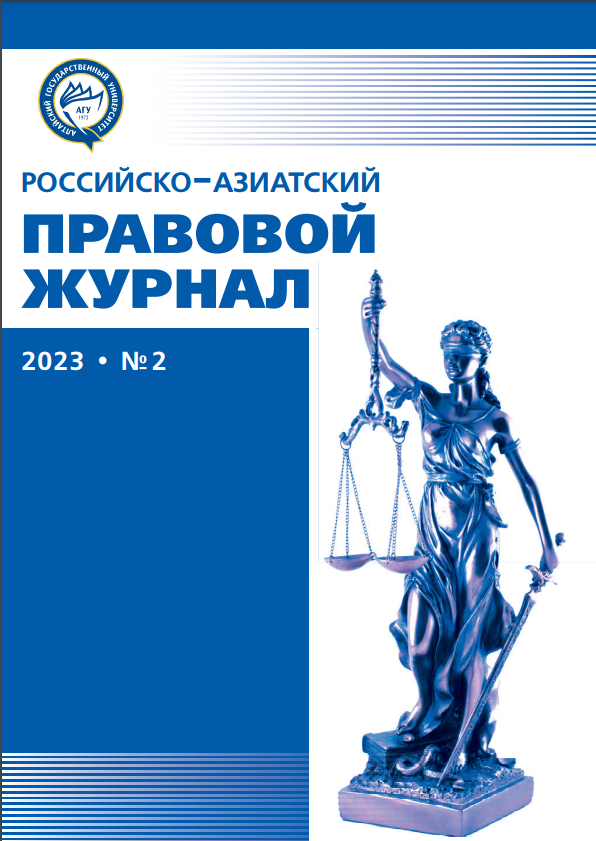THE BOLOGNA PROCESS: INTEGRATION OF HIGHER EDUCATION
УДК 347:349.2 ББК 67.405.02
Abstract
This work is devoted to the legal analysis of the implementation of the Bologna process in the Kazakheducation system. After signing the agreement on the implementation of the Bologna Process, Kazakhstanhas intensified international cooperation in the field of higher education. The integration of the country'shigher education system into the global educational space is one of the long — term strategic priorities ofthe republic. A significant number of bilateral intergovernmental agreements on cooperation with higherschools of foreign countries have been signed, and the number of direct agreements with foreign universitieshas increased significantly. Quality assurance systems are of fundamental importance for higher educationprograms. The degree or diploma of each cycle should determine the general direction and occupation, andthe qualification system should take into account all the diversity of individual needs, academic success anddemand in the labor market.
Downloads
References
Официальный сайт НААР. URL: http://www.iaar.kz/ru/about-ru/otchety-naar/51–2013–03–27–11–25–20/2013–03–27–12–11–34/118–2013–03–27–12–14–36.
Европейское пространство высшего образования: Совместное заявление министров образования европейских стран URL: http://hosting.vspu.ac.ru/~chul/bolon/index.htm.
Разработка совместных магистерских программ для Европы. Итоги магистерских программ ЕАУ — 2005. ЕАУ, Сократ.
Олейникова О. Болонский процесс и сопоставимость программ, дипломов и квалификаций высшего образования // Вестник Московского государственного университета. Серия: Психологические науки. 2009. С. 13–25.
Структуры квалификаций в высшем образовании в Европе: рекомендации Болонского семинара. Копенгаген, 27–28 марта 2003 г. Веб-сайт Берлинского Болонского саммита — 2018. С. 14–19.
Международный семинар по степеням бакалавра, Хельсинки, Финляндия, 16–17 февраля 2001 г.: Выводы и рекомендации семинара для Пражского саммита по высшему образованию. — п. 5.
ЮНЕСКО. МИПО Болонский процесс: его влияние в Европе и за ее пределами. 2013. С. 12.
Russian-Asian Law Journal is a golden publisher, as we allow self-archiving, but most importantly we are fully transparent about your rights.
Authors may present and discuss their findings ahead of publication: at scientific conferences, on preprint servers, in public databases, and in blogs, wikis, tweets, and other informal communication channels.
Russian-Asian Law Journal allows authors to deposit manuscripts (currently under review or those for intended submission) in non-commercial, pre-print servers such as ArXiv.
Authors who publish with this journal agree to the following terms:
- Authors retain copyright and grant the journal right of first publication with the work simultaneously licensed under a Creative Commons Attribution License that allows others to share the work with an acknowledgement of the work's authorship and initial publication in this journal.
- Authors are able to enter into separate, additional contractual arrangements for the non-exclusive distribution of the journal's published version of the work (e.g., post it to an institutional repository or publish it in a book), with an acknowledgement of its initial publication in this journal.
- Authors are permitted and encouraged to post their work online (e.g., in institutional repositories or on their website) prior to and during the submission process, as it can lead to productive exchanges, as well as earlier and greater citation of published work (See The Effect of Open Access).








